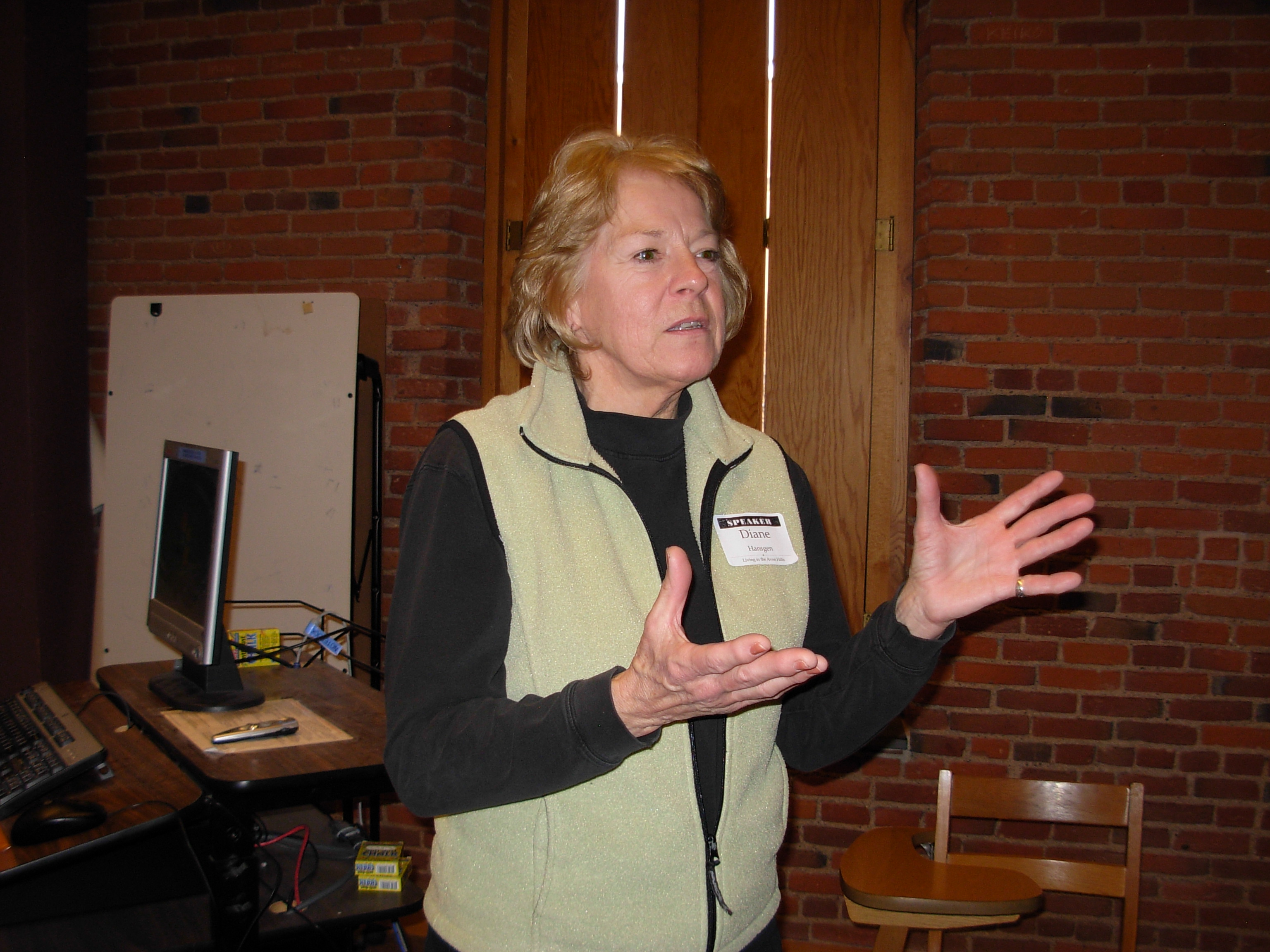by Cori Hilsgen – www.thenewsleaders.com
Several St. Joseph residents recently presented reports at the “Living in the Avon Hills” conference held on Saturday, Feb. 2 at St. John’s University.
Some of the presenters included Diane Hansgen, Steve Ruprecht, Susan Kroska and Dr. David Kroska.
Hansgen presented “Lilies You Will Love,” about successful planting methods and how to choose the right lily to have a garden of color from spring until fall. Hansgen discussed OT hybrids, which produce large, fragrant, trumpet-shaped flowers; the altari lily which grows to heights of more than four feet; LA hybrids, which make very good cut flowers; and how tiger lilies only grow in the colors of orange, yellow, red and pink.
She shared many other interesting details about lilies. Her talk included how martagon lilies like shady areas where roots are kept cool and can provide a good border in a wild flower or woodland setting. Hansgen said if you brush the pollen off of the anthers, lilies will keep longer and make excellent cut flowers for bringing indoors.
Hansgen, who is a master gardener, has been giving presentations for 15 years. She said she was hooked after her first presentation at the LaPlayette Bar in St. Joseph when she presented vegetable gardening to a group of women from the Cold Spring school district. She belongs to several gardening organizations. Last year, she was asked to be a part of the Minnesota State Horticulture Society’s garden tour, which was held in St. Cloud. Beginning in April, Hansgen begins yearly presentations in various cities. Topics she has presented include perennials such as peonies, hostas and ferns. A new topic she will discuss this year is ornamental grasses.
Steve Ruprecht, who is the nursery manager at Thomsens Greenhouses, presented a report on “Tree Pruning Made Simple.” He discussed how and when to prune various trees. Ruprecht said late winter, or now through March, is the best time to prune. Some trees such as silver maple, sugar maple, spruce and white pine will “bleed” or leak tree sap. Early summer or May when the tree leaves have fully expanded is a good time to prune those types of trees.
Trees have different bud arrangements, either opposite or alternate. Ruprecht said pruners want to cut the branch so it grows away from the tree. A forked branch on old, established trees can cause a tree to split in half. Ruprecht that the pruner can drill through the two sections and brace the branches with bolts. The tree bark will grow over the bolts. He recommended using a three-point cut on branches that are bigger than one inch. A three-point cut involves undercutting the branch, then making a second cut above the first cut and lastly cutting the branch right along the collar of the tree branch. Ruprecht said it is good to remove broken branches and suckers from a tree because they can draw some of the energy from the tree.
This is Ruprecht’s third year of speaking at the Avon Hills conference.
“It’s a really good place to get in touch with the Avon Hills crowd,” Ruprecht said. “It’s always good to see your neighbors and introduce them to what is new this year.”
Susan Kroska presented a report on “Susan’s Artisan Bread.” She talked about how to make bagels that are crispy on the outside and soft and chewy in the middle. Kroska passed out samples of her “Everything” and “Asiago Cheese” bagels and also samples of her scones.
Kroska, who attended the San Francisco Baking Institute and also took classes in Canada and San Diego, said she has loved baking since she was very young.
Kroska’s husband, Dr. David Kroska of ACME Tomatoes, also presented a report called “Tomatoes: Tips, Tricks and Trivia” at the conference.
The keynote speaker was Stan Tekiela, a Minnesota author, photographer and naturalist.
The day was broken down into four 45-minute sessions. People who attended the conference were able to choose to attend any session on a first-come, first-served basis throughout the day.
Organized by the Avon Hills Initiative and other individuals, the all-day conference is held on a Saturday each winter, and usually covers a variety of topics on land use, natural history, alternative energy, the arts and more. The conference is meant to be a learning experience for the whole family and several of the sessions are designed especially for children.
The AHI is an organization of concerned citizens who are working to preserve the rural and natural character of the Avon Hills, an area of about 50 square miles of land in St. Joseph, Avon, St. Wendel and Collegeville townships.
The AHI works through educating and organizing local government to increase awareness of land-development pressures facing the Avon Hills. Members try to communicate with involved people to try to preserve the history, natural beauty and differing biological elements of the hills for future generations, while still respecting the individual landowner’s rights.







